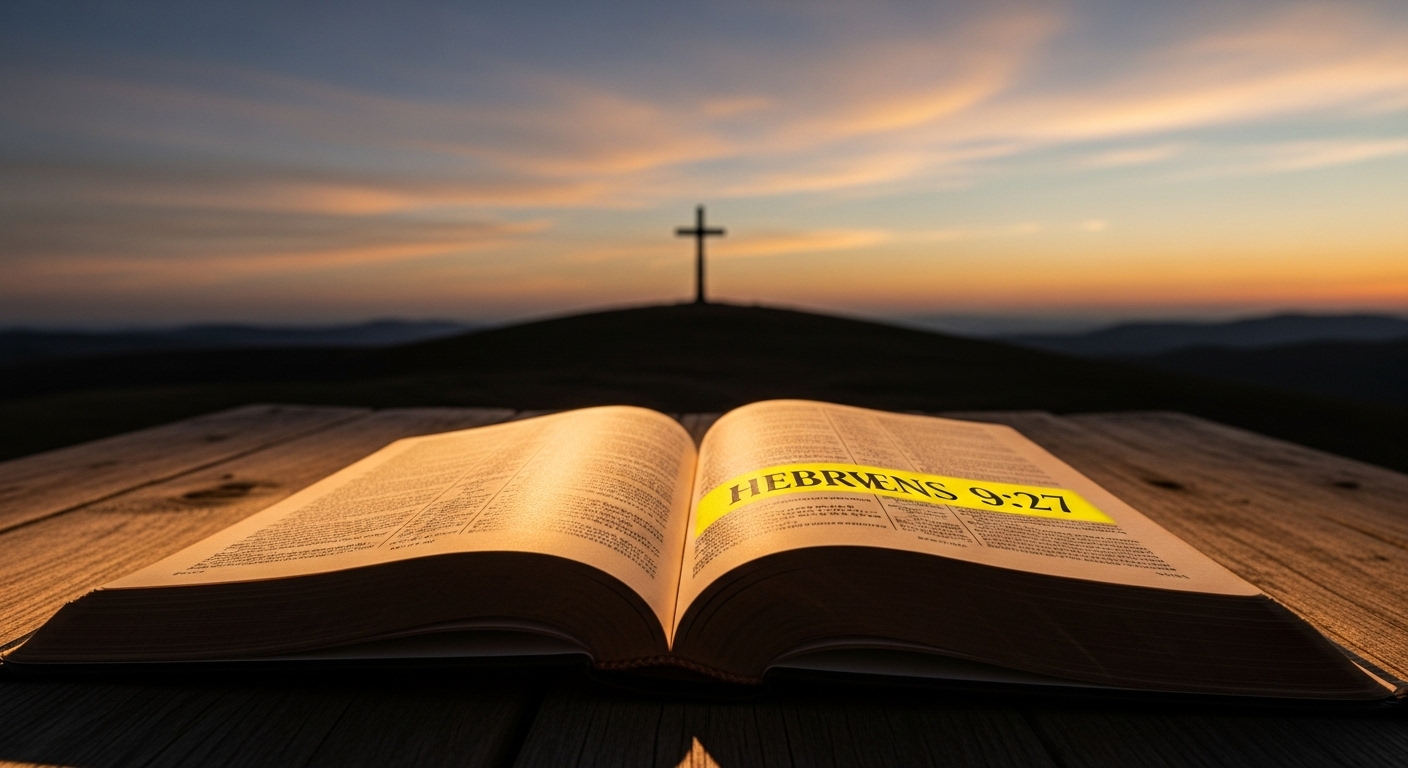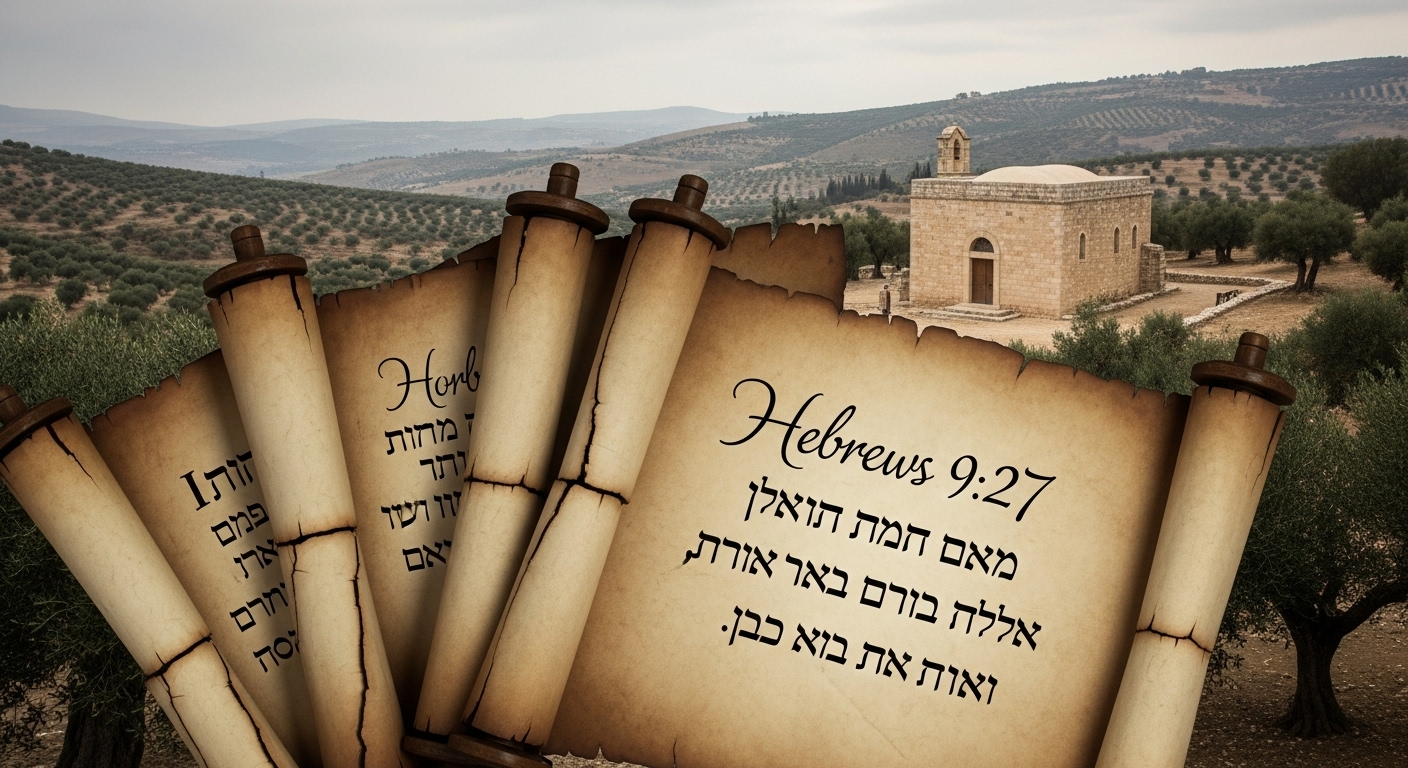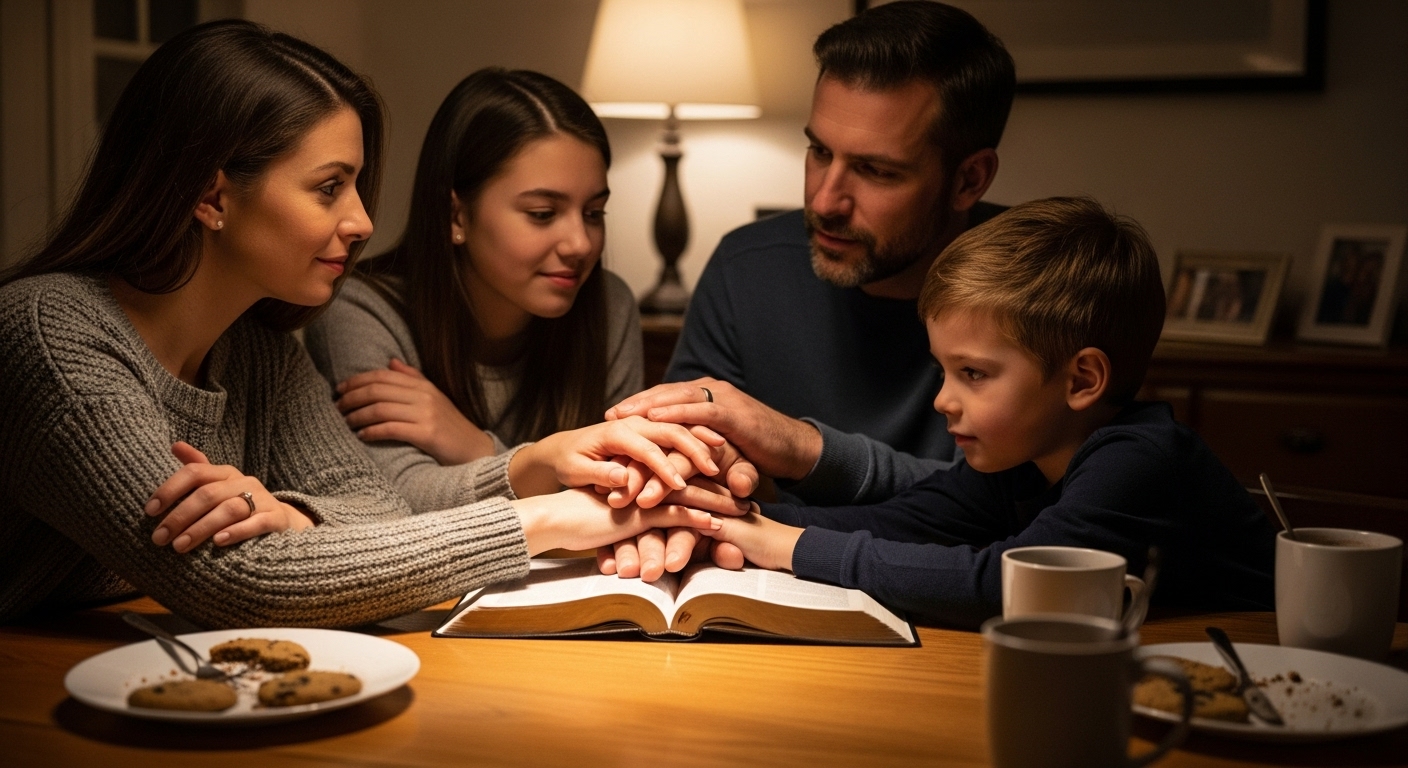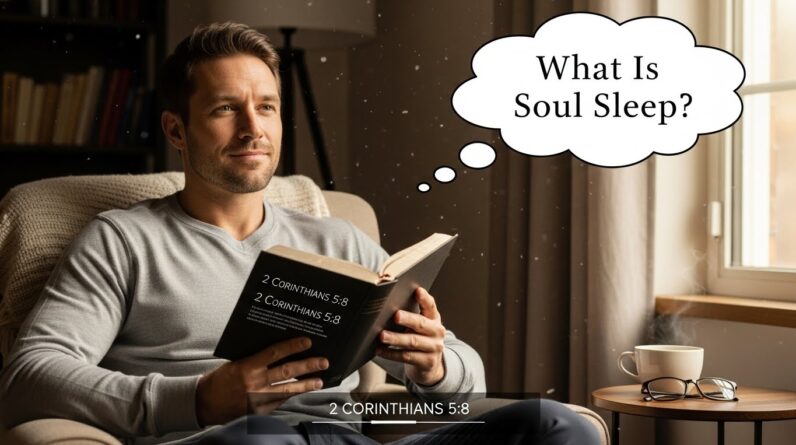What Happens After We Die According To The Bible? — Hebrews 9:27

Reflection Introduction
Have you ever sat quietly and wondered what happens after you die? It’s one of those questions that can catch you off guard in the middle of a meal or wake you in the night. You’re not alone—doubt, curiosity, and a desire for comfort drive this question. Some people fear judgment, others hope for reunion with loved ones, and many wrestle with how Scripture answers this in a way that feels both true and tender.
This article walks with you through Hebrews 9:27 and the surrounding teaching in Scripture so you can see, in simple terms, what the Bible says about life after death. You’ll get the verse itself, the context it sits in, spiritual truths it reveals, and practical ways to live in light of it. If your questions are heavy or your heart needs reassurance, this is a safe place to explore them.
Verse Foundation
Hebrews 9:27 (NIV) — “Just as people are destined to die once, and after that to face judgment,”
Hebrews 9:27 (NIV) on Bible Gateway

This verse is short, direct, and often quoted when people ask about the afterlife. It doesn’t give a full map, but it gives key landmarks: death is a universal destiny, and what follows includes facing a form of judgment. To understand what this means, we look at the verse within its biblical context and then explore what the broader witness of Scripture says about life after death.
You may also find it helpful to compare this with other passages about death and the afterlife, such as John 11:25-26 (Jesus as the resurrection and the life) and 2 Corinthians 5:8 (to be away from the body is to be at home with the Lord). See John 11:25-26 (NIV) and 2 Corinthians 5:8 (NIV) for more context.
Core Explanation (Bible Answer Unpacked)
Below you’ll find the heart of the question unpacked in three simple parts so you can see what Hebrews 9:27 originally meant, what it reveals spiritually, and how it applies practically.
A. Biblical Context
Hebrews is a letter written to Jewish believers who were tempted to return to old religious practices under pressure. The author reminds them that Christ’s sacrifice is once-for-all, superior to repeated temple rituals. When Hebrews 9:27 says people are “destined to die once, and after that to face judgment,” it’s asserting the finality of physical death and the seriousness of what comes next.
In its immediate context, the verse contrasts the repeated sacrifices under the old covenant with the definitive work of Christ. The point isn’t merely to scare but to underline the urgency of responding to God’s one true sacrifice. Understanding the historical and theological background helps the verse land not as cold legalism but as a call toward trusting Christ’s finished work.

B. Spiritual Meaning
Spiritually, Hebrews 9:27 affirms two truths: mortality and accountability. Mortality reminds you that life here is finite—every person dies. Accountability reminds you that life doesn’t end in meaningless silence; God’s justice and mercy have a place in what follows.
But what does “judgment” look like? Scripture portrays different dimensions: an individual accounting of your life (Romans 14:10), the mercy offered through Christ (Romans 3:23-24), and ultimately the redeemed enjoying eternal life (John 3:16). Judgment, biblically, is not just a punitive finality; it’s also where God’s righteousness and grace meet. If you’ve placed faith in Christ, passages like John 5:24 and Romans 8:1 suggest you are declared righteous and secure before God because of Christ’s work. See Romans 8:1 (NIV).
The Bible also shows that death is not the end of a relationship with God. Jesus’ promise in John 11:25-26 points to life after death for those who believe in him. Meanwhile, stories like the rich man and Lazarus (Luke 16:19–31) show a conscious existence after death, suggesting awareness and moral consequence.
C. Practical Understanding

What verses like Hebrews 9:27 are not doing is giving a step-by-step map of the afterlife the way a modern travel guide would. Instead, Scripture provides theological truths to shape how you live now: death is real, judgment is real, and Christ offers rescue. That reframes fears into an invitation—an opportunity to trust rather than despair.
Common misconceptions: some think judgment means a capricious god deciding on the spot who goes where; Scripture frames judgment around God’s revealed standard—His holiness and the transformative work of Christ. Others assume death erases identity; biblical teaching affirms personal continuity. The Bible provides enough clarity to motivate faith and hope without answering every speculative question about mechanics.
Practically, that means you’re called to respond: to recognize your need for grace, to accept Christ’s forgiveness, and to live in light of eternity. These are not legalistic mandates but invitations into a relationship—one that changes your priorities, your compassion, and how you face mortality.
Life Application
How do you live now, knowing Hebrews 9:27? Start with small, steady steps that align your daily life with this eternal perspective.
- Prioritize relationship with God: Set aside daily time for Bible reading and prayer. Let the truth of Christ’s sacrifice shape your gratitude and choices.
- Reassess what you value: When you believe life is finite, you often reprioritize relationships, service, and mercy over accumulating things.
- Share the hope: Talk gently with friends and family about what gives you peace about death. Your witness can comfort others who are anxious.
- Prepare practically and spiritually: Practical preparations (wills, conversations) combined with spiritual reflection (confession, reconciliation) bring peace in uncertainty.
Living in light of Hebrews 9:27 isn’t morbid; it’s freeing. You can live with purpose and share hope without pretending the question of death isn’t real. For encouragement on everyday faith habits, see this helpful resource at BibleStoriesHub: https://biblestorieshub.com/daily-scripture-reflection-finding-peace-in-chaos/
Reflection Box 🪞
Take a moment to pause and bring this truth into your personal life.
Reflection Prompts:
- How has your understanding of what happens after death shifted as you read Hebrews 9:27 today?
- What is one practical step you can take this week to live with the hope and urgency this verse implies?
Related Post: Why Does God Allow Suffering? — Romans 8:28
Q&A (Quick Bible Insights) ✨
Q1: Does Hebrews 9:27 mean everyone goes to the same place after death?
No. Hebrews 9:27 states death and judgment are realities, but the Bible consistently shows different outcomes based on one’s standing with God—judgment for sin, and life for those in Christ (see John 5:24). John 5:24 (NIV)
Q2: Is judgment immediate after death or at the end of time?
Scripture uses both images. Hebrews 9:27 suggests an individual facing judgment after death, while Revelation speaks of a final judgment. These are complementary perspectives emphasizing both immediate accountability and a future consummation (see 2 Corinthians 5:8 and Revelation 20:11–15). 2 Corinthians 5:8 (NIV)
Q3: What comfort does the Bible offer about dying?
The Bible offers comfort in Christ: Paul says to be “away from the body” is to be “at home with the Lord,” and Jesus promises resurrection and eternal life to those who trust him. This gives a profound hope that transcends fear (see Philippians 1:21-23). Philippians 1:21-23 (NIV)
Closing Prayer 🙏
Lord Jesus, you have faced death and broken its power through your resurrection. Thank You that life does not end in silence but that You invite us into mercy and truth. Help me to trust Your promises, live with purpose, and share this hope with love. Give me the courage to face mortality with peace, and the faith to walk toward you. Amen.
Final Thoughts
Hebrews 9:27 gives you a clear, sobering reminder: life is finite and judgment matters. Yet the fuller story of Scripture balances that reality with the hope of salvation in Christ. If you place your trust in Jesus, you’re not left to fear what comes after; you’re invited into secure, eternal life. Live now with that hope—loving others, seeking justice, and resting in God’s mercy.

Explore More
For further reading and encouragement, check out these posts:
👉 7 Bible Verses About Faith in Hard Times
👉 Job’s Faith: What We Can Learn From His Trials
👉 How To Trust God When Everything Falls Apart
👉 Why God Allows Suffering – A Biblical Perspective
👉 Faith Over Fear: How To Stand Strong In Uncertain Seasons
👉 How To Encourage Someone Struggling With Their Faith
👉 5 Prayers for Strength When You’re Feeling Weak

📘 Jesus and the Woman Caught in Adultery – Grace and Mercy Over Judgement
A powerful retelling of John 8:1-11. This book brings to life the depth of forgiveness, mercy, and God’s unwavering love.
👉 Check it now on Amazon 🛒💥
🔥 “Every great message deserves a home online.” 🌍💬🏡
Don’t let your calling stay hidden. Start a Christian blog or website using Hostinger — with 99.9% uptime, a free domain, and SSL, your voice can shine for God’s glory anytime, anywhere.
💥 Begin today. 🛒 Try it RISK-FREE! ✅
✝️ “Your body is God’s temple — care for it with purpose.” 💪💖🏛️
Renew your energy and restore balance naturally. Mitolyn helps support a healthy metabolism, giving you the vitality to live out God’s calling with strength and confidence.
🔥 Unlock Your Metabolic Power! ⚡Burn More Calories & Feel Great With Mitolyn. 💪
👉 Start Today. 🚀 Check Price Now. 🛒💰
💰 As a ClickBank & Amazon Affiliate, I earn from qualifying purchases.
📖 Acknowledgment: All Bible verses referenced in this article were accessed via Bible Gateway (or Bible Hub).
🚀 Want to explore more? 👉 Dive into our new post on Why Jesus? and experience the 🔥 life-changing truth of the Gospel!








